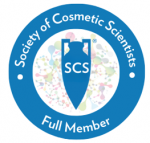Cosmetic Safety and Regulatory Insights
Stability Testing of Cosmetic Products
Stability Testing of Cosmetic Products - A Pragmatic Guide I have many customers who are just starting out and have no idea what shelf-life to quote for their products. The shelf-life is an indication of how long a product will last, how long it will continue to...
Choosing the Right Consultant for Regulatory Compliance in the Cosmetics Industry
GCS focusses on providing CPSRs to cosmetic brand owners. A CPSR is only one part of the regulatory pie. There are lots of other aspects to compliance when thinking about selling your cosmetic product: – Product Information File Finding / being a Responsible Person...
Achieving Microbiological Quality and Safety in Cosmetics – Part 2
Microbial quality in cosmeticsIn Part 1 of looking at aspects related to microbes in cosmetics, I wrote about what a microbe is, what are the requirements for testing – purity and stability and why this is important when making and selling cosmetic products. In Part 2...
BBE vs Period After Opening
The "Best Before Date" and "Period After Opening (PAO)" are labelling terms used on cosmetic products to provide information about the product's shelf life and usage recommendations. What is the difference between the two?Best Before End (BBE):Used for products that...
Why Assign Product Codes to Cosmetic Products?
In the world of cosmetics, keeping track of different formulations and ensuring consistency is crucial. One of the best ways to achieve this is by assigning product codes to each cosmetic product. But what exactly is the purpose of these codes, and what benefits do...
The Essential Guide to INCI Names in Cosmetics: Understanding, Finding, and Using
The Essential Guide to INCI Names in Cosmetics: Understanding, Finding and UsingIntroduction: Cosmetic products play a significant role in our daily lives, offering a wide array of beauty and personal care solutions. Behind every cosmetic product lies a diverse range...
Unveiling the World of Cosmetic Colour Ingredients
Unveiling the World of Cosmetic Colour IngredientsImagine a world devoid of cosmetic colour. No vibrant red lipstick, no striking blue eyeshadow, no soft pink blushes – just a monochrome existence. In the realm of cosmetics, colourants play a crucial role in...
Limitations for use of Commonly-used Colours in Cosmetic Products
Limitations for Use of Commonly-Used Colours in Cosmetic ProductsColours which are only permitted for rinse-off products CI 12700, CI 21108, CI 40215, CI 42080, CI 45100, CI 51319, CI 61585,CI 62045, CI 73915, CI 74180 Colours which are not permitted for use on mucous...
IFRA: Ensuring the Fragrance World’s Safety
IFRA: Ensuring the Fragrance World's SafetyWhat is the IFRA (International Fragrance Association) In the realm of fragrances, safety is paramount, and that’s where IFRA, The International Fragrance Association, takes centre stage. IFRA represents perfume-making...
Essential Oils in Cosmetics
Essential Oils in CosmeticsWhat Are Essential Oils? Essential oils are the aromatic oils found in some plants that give them their distinctive scents. These oils are called “essential” because they capture the essence of the plant’s fragrance. They are volatile,...
Safety Assessor Qualifications
MSc (Distinction), University of Strathclyde
BSc (Hons) Chemistry, University of Nottingham
Certificate - Safety Assessment of Cosmetics in the EU, Vrije University Brussels
Get in Touch
If you would like to discuss any of your products or ranges, please fill out our contact form




